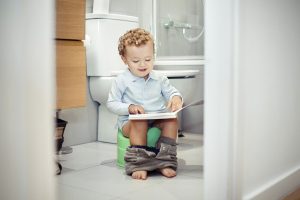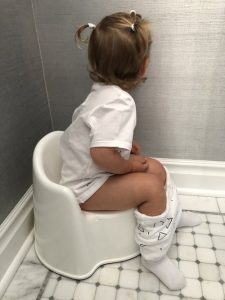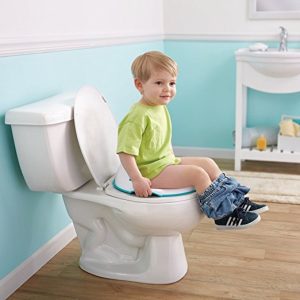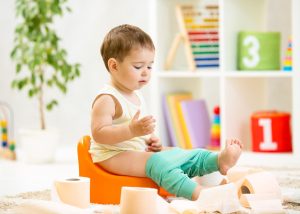Potty training is a big accomplishment for toddlers. It takes time, patience, and positive reinforcement. Rewards can be a great way to motivate your child during this process. Here are some tips for using potty training rewards effectively.
The Power of Positive Reinforcement
Positive reinforcement is key to successful potty training. It focuses on praising and rewarding your child for using the potty, rather than punishing them for accidents. This helps create a positive association with using the toilet.
Praise and Encouragement are Powerful Tools
The most important reward you can offer your child is your praise and encouragement. Celebrate their successes with big smiles, high fives, and lots of “good job”s!
Choosing the Right Rewards
When selecting rewards, keep your child’s age and interests in mind. Here are some ideas for non-food rewards:
Stickers:
Create a sticker chart and let your child add a sticker for using the potty.
Sing a Song or Read a Story:
Make potty time more enjoyable with a special song or story.
Playtime:
Offer a short period of focused playtime with a favorite toy or activity.
Choose a Special Book:
Let your child pick out a new book to read together after using the potty.
 Simple Rewards Work Best
Simple Rewards Work Best
Start with small, simple rewards and gradually increase the value as your child progresses. This keeps them motivated and reinforces the desired behavior.
Rewards should motivate your child, not pressure them. Avoid using rewards as bribes to get your child to use the potty. Focus on celebrating their successes.
Rewarding Consistency Over Perfection
Accidents are inevitable during potty training. The goal is to reward progress, not perfection. Here are some tips:
- Reward the Effort: Praise your child for trying to use the potty, even if they don’t go.
- Focus on Improvement: Celebrate small improvements, like staying dry for longer stretches.
- Don’t Punish Accidents: Accidents happen. Clean up calmly and gently remind your child about using the potty next time.
Tailor Your Approach to Your Child
Every child is unique. What motivates one child might not work for another. Be flexible and adjust your reward system based on your child’s needs and preferences.
Moving Beyond Rewards
As your child progresses in potty training, you can gradually move beyond using rewards. Here’s how:
- Praise and Recognition: Continue to offer praise and recognition for using the potty.
- Sense of Accomplishment: Let your child take pride in their newfound independence and accomplishment.
- Positive Role Models: Talk about friends or family members who use the potty and how grown-up they are.
The ultimate goal of potty training is for your child to use the potty independently. Rewards can be a helpful tool along the way, but eventually, the sense of accomplishment and pride will take over.
Potty training is a journey filled with milestones and successes. By using positive reinforcement, including effective rewards, you can help your child feel motivated and confident throughout the process. Remember, focus on celebrating progress, be patient, and enjoy this special time together.
Keeping it Fun and Engaging
Potty training can be a long process, so keeping things fun and engaging is important. Here are some ways to add excitement to your reward system:
- Sticker Charts with Themes: Create sticker charts with fun themes like animals, princesses, or superheroes. Let your child decorate the chart and add stickers for using the potty.
- Sing a Silly Potty Song: Make up a short, catchy song about using the potty and sing it together during potty time.
- Play a Potty Game: Create a simple game like rolling a die and moving a game piece for each successful potty use.
- Pom-Pom Drop: Put colorful pom-poms in a clear container and let your child add one for each successful potty trip.
Rewards Beyond Physical Objects
While small toys or trinkets can be motivating, focus on creating positive experiences around potty time.
- Special Playtime with You: Offer short bursts of one-on-one playtime for using the potty. This personalized attention can be a great reward.
- Choose a Fun Activity: Let your child pick out a special activity to do together, like going to the park or reading their favorite book, after using the potty.
Working with Preschools or Daycares
If your child attends preschool or daycare, talk to their caregivers about your potty training plan and reward system. Consistency between home and daycare can greatly benefit potty training success. Here are some tips for collaboration:
- Share Your Reward System: Inform the caregivers about the rewards you’re using at home and see if they can implement a similar system at daycare.
- Communication is Key: Talk openly with the caregivers about your child’s progress and any challenges they might be facing.
- Celebrate Together: It’s wonderful to celebrate milestones together! When your child has a success at daycare, acknowledge it at home as well.
Collaboration is Key
If your child attends daycare or preschool, collaborate with their caregivers to ensure consistency in potty training practices. Here are some ways to work together:
- Share Your Routine: Inform the caregivers about your potty training routine at home, including scheduled breaks and how you celebrate successes.
- Open Communication: Maintain open communication with the caregivers about your child’s progress and any challenges they might be facing.
- Teamwork Makes the Dream Work: By working together, you can create a supportive environment for your child to succeed in potty training.
Celebrate Milestones
As your child progresses in potty training, celebrate their milestones! Here are some ideas:
- Verbal Praise: Offer enthusiastic praise and encouragement for their successes.
- Extra Playtime: Spend some quality one-on-one playtime together after using the potty.
- Special Outing: Plan a fun outing to the park or playground after a successful potty day.

Conclusion
Potty training rewards can be a helpful tool to motivate your child during this important milestone. The focus should be on creating a positive and supportive environment that fosters a sense of accomplishment and independence in your child. By using a combination of positive reinforcement, a consistent routine, and collaboration with caregivers, you can help your child on their potty training journey.







